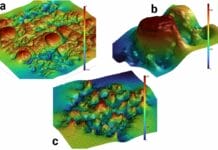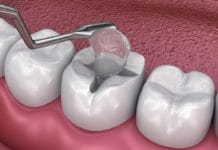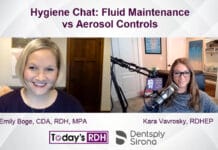Gum disease runs the range of being mildly uncomfortable to downright painful. Researchers at the Centers for Disease Control estimate that nearly half — 47.2 percent — of adults over age 30 have some form of periodontal disease. Caused by harmful oral bacteria that proliferate in our mouths, periodontal disease symptoms range from sensitive or bleeding gums to gums pulling away from teeth with resulting tooth loss.
Now, scientists have one more reason why taking care of your mouth and avoiding should be avoided at all costs: The same types of oral bacteria that cause periodontal disease may increase your risk of esophageal cancer.
Researchers had already linked some types of oral bacteria with an increased risk of oral cancers. Chinese scientists analyzed several of the studies done relating to head and neck cancers and determined that periodontal disease increases cancer risk two-fold. While these oral cancers are difficult to completely remove and treat, esophageal cancer is even less likely to be discovered until it is in an advanced stage. This means that survival rates are lower; around the world, only about 15 to 25 percent of esophageal cancer patients live five years after diagnosis.
How Did Researchers Link Periodontal Disease and Esophageal Cancer?
To begin their research, scientists at New York University accessed a database with the oral wash samples of 122,000 patients who volunteered to take part in large-scale cancer studies. From the group of study participants, 106 developed esophageal cancer within ten years. Researchers looked at the differences between these 106 people and the cancer-free group by extracting and sequencing DNA from the oral wash samples. This allowed a side-by-side comparison of the oral microbiomes of each subject.
What the researchers discovered is that certain types of bacteria associated with gum disease were present in the oral wash of those subjects with cancer. Specifically, higher levels of Tannerella forsythia indicated a 21 percent higher risk of one type of cancer, esophageal adenocarcinoma (EAC). Another type of bacteria, Porphyromonas gingivalis, was related to a second type of esophageal cancer, esophageal squamous cell carcinoma (ESCC).
The study revealed that there may also be connections between good bacteria and staying cancer-free. As part of their research, the NYU scientists discovered that patients with Neisseria bacteria in their oral wash had a lower risk of EAC.
What Does This Mean for Sufferers of Gum Disease?
Identifying this connection is actually a good thing for patients with periodontal disease and those who may be susceptible. By encouraging good oral hygiene, dental professionals may be able to help their patients avoid some types of esophageal cancers. Individuals at higher risk can be screened more carefully for cancer and can be educated about the early signs of esophageal cancer.
“Our study indicates that learning more about the role of oral microbiota may potentially lead to strategies to prevent esophageal cancer, or at least to identify it at earlier stages,” said associate NYU professor Jiyoung Ahn, Ph.D., who headed the study. “The next step is to verify whether these bacteria could be used as predictive biomarkers.”
It’s too soon to determine whether a genetic component exists that makes some people more likely to have harmful oral bacteria and develop some types of cancer, but there are environmental factors that dentists can refer to when explaining the importance of avoiding gum disease to patients.
Regular brushing and flossing to manually remove bacteria and plaque, maintaining a healthy diet, and quitting or avoiding the use of tobacco, are all keys to reducing the risk of periodontal disease. Talking to patients about the importance of oral health is now more important than ever as increased connections between oral bacteria and cancer are discovered.











